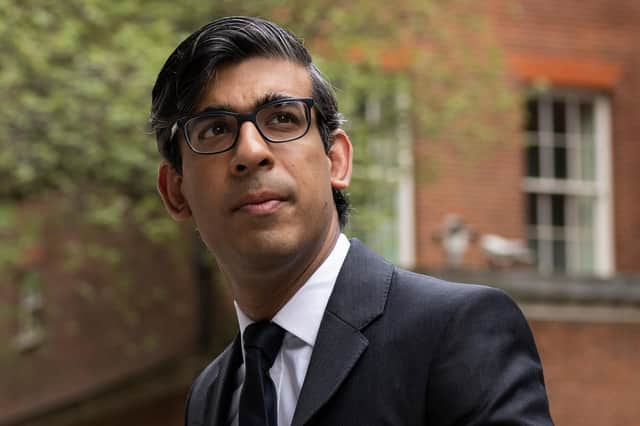Wounds will re-open as the economic threat of Covid becomes clear - Christine Jardine MP


The book is a photographic record of the Aberdeen Journals strike in 1989 which is still the longest and costliest dispute in the history of the Scottish media.
It was also a very personal and deeply informative experience, the impact of which resonates across the past 18 months.
Advertisement
Hide AdAdvertisement
Hide AdIt seems that almost every day I hear from constituents whose lives have been thrown into turmoil or whose futures and financial security are at risk from the economic storm we all fear is on the horizon.
I think I know some of how they feel.
In August 1989, my husband and I had just settled into our new house in Aberdeenshire. Calum had a secure well-paid job and I was happy building my freelance career.
As a child I had known the impact of losing the household income and was secure that it would not happen to us. I was wrong.
The causes, stances, rights and wrongs of the dispute are not what matters here. It is the impact which does.
It was a painful and costly year for us and a lot of our friends. At the end of it we sold our house, moved from Aberdeen.
It took years to recove,r both emotionally and financially.
But not everyone faced with similar circumstances is as lucky as we were, or will be, as we all brace ourselves for the economic impact to come.
As the end of furlough looms I find myself frustrated that this Government, which said it was prepared to do ’whatever it took’ to protect people through this crisis seems intent instead on closing down all options in September.
Families – almost two million people - who have survived so far on furlough will have to hope their employers have the strength to continue.
Advertisement
Hide AdAdvertisement
Hide AdBusinesses that were successful now have to work to avoid falling victim to debt burden and lack of cash flow because they followed Government guidelines.
None of us knows what the government’s long-term strategy, if it has one, is.
The economy has shrunk so much that even the National Institute of Economic and Social Research (Niesr) prediction that growth will increase from 5.7% to 6.8% offers little confidence.
And it doesn’t equate to good news for employment. Their forecast for the number of people without a job is set to increase from 4.8% currently to 5.4%.
The British Chambers of Commerce reckons 1 in 5 companies will be making people redundant.
But those are just the numbers. They do not tell us the consequence for families who could face the double whammy of the end of the Universal Credit uplift.
The Chancellor apparently believes that cutting Universal Credit is an incentive to find work and saves him money.
His defence? It was not going to be forever, that his Government is not done helping those people.
Advertisement
Hide AdAdvertisement
Hide AdBut while we are still struggling to see a clear picture, there is a second threat to livelihoods.
Hard won and fiercely defended employment rights that were secured over the best part of a century, could be in danger.
Fire and rehire is a phrase I thought was long gone from the lexicon of the British workplace.
But too many employers either genuinely, or as a cynical tactic, have used the crisis as an excuse to raise it as a realistic possibility once again.
In my own constituency of Edinburgh West there was early and widespread concern in this crisis at the implications for staff at British Airways – perhaps the most high profile of fire and rehire’s advocates.
Dozens of employees in my constituency called or emailed looking for help and support.
Many were also looking for some explanation of how it was possible, in our modern economy, with legally enshrined employment rights, for long-term employees to be put through the trauma of what some euphemistically call “adjusted contracts”.
For me that fear and trauma is reason enough to back the Employment and Trade Union Rights (Dismissal and Re-engagement) Bill 2021-22 tabled by Barry Gardiner MP.
Advertisement
Hide AdAdvertisement
Hide AdIts stated aim of providing safeguards for workers against dismissal and re-engagement on inferior terms and conditions is one I find it astonishing anyone could quibble with.
To allow fire and rehire would be to accept that none of us would ever be able to rely on the terms and conditions of our employment being protected.
It would be to change the balance of the employer/employee relationship and put us all on uncertain ground over mortgages, rent, monthly utility bills, holidays and feeding our families.
As MPs it would be to abrogate our responsibility to defend the vulnerable.
Certainly none of us can deny the unexpected shock felt by our economy and the impact that Covid-19 has had on many sectors, and especially on the travel, airlines and the air sector in general.
But that is no reason to make a mockery of employment rights and to punish those who are already facing uncertainty and personal challenges in the pandemic.
To think that once this was allowed it would not become accepted practice would also be naive.
I found the photograph I was looking for. It is, I am sure, the only time in my life that I saw my middle class, right of centre husband carry a placard in a march.
Advertisement
Hide AdAdvertisement
Hide AdThe scars have long since healed but the memory is still a powerful motivation.
As furlough comes to an end we face an economic threat of unknown proportions.
I fear the re-opening of old wounds.
